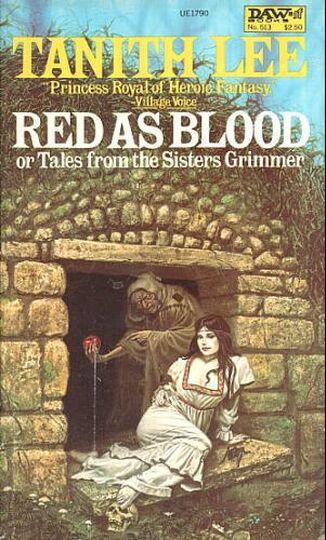Not to be rude
This book too.
( Read more... )
A vid or fanvid is a video edit, often set to music, produced by fans, known as "vidders."
“They were lost to their passion and their lust” - it's actually Buddhist monks in Thailand, but this is not a scenario unknown in the annals of Christian monasticism in Europe, hmmmmm?
The disappearance of a respected monk from his Buddhist temple in central Bangkok has revealed a sex scandal that has rocked Thailand, with allegations of blackmail, lavish gifts and a string of dismissals raising questions about the money and power enjoyed by the country’s orange-robed clergy. Investigations into the whereabouts of senior monk Phra Thep Wachirapamok unexpectedly led police to a woman who the police suspect conducted intimate relationships with several senior monks, and then blackmailed them to keep the liaisons quiet.
Monks in Thailand receive monthly food allowances of between 2,500-34,200 baht (£57-785), depending on their rank, but temples and monks also receive donations. The latter can prove especially lucrative for monks of higher stature, who might be given tens of thousands of baht, or even more, by wealthy individuals.
But this is just Damn Weird:
A group of seminarians studying at Denver’s St. John Vianney Theological Seminary were taken on the trip in January 2024 by then-vice rector of the seminary, Fr. John Nepil, during which they were woken in the middle of the night and invited individually to swear a “blood oath” in a ceremony involving a dagger and a man in a yeti costume. During the bizarre ceremony, video of which was sent to The Pillar by multiple sources in the archdiocese, seminarians were told to scream as if in pain before returning with a bloodied cloth wrapped around their hand and their mouths taped shut, to a room where others waited for their turn to be brought in.
[T]he idea of this prank came from the man hosting the seminarians and the seminary staff on the ski trip, whom he confirmed was the person in the yeti costume. “This Catholic man is well known in the town and is regularly asked to appear at events in this costume,” Nepil said. “He has done this specific prank many times with family, friends, and other guests who stay at his ski cabin. At no time was there any risk of physical harm, but in hindsight, and even though the host wanted to do this, it should have never happened.”
(Is the yeti actually a fursona, we ask.)


At the end of the day, when the shops closed, the city felt like the bottom of a glass that too many people had been drinking from. [loc. 1830]
Set in a village on the outskirts of Nottingham ('the UK city where you're statistically most likely to be assaulted by a stranger') in the early Eighties, this is the story of Benji, an only child aged seven, who spends his time playing with the ZX Spectrum at school, building a nuclear fallout shelter in the woods, listening to The Teardrop Explodes and waiting for the aliens to come and return him to his home planet. (He glimpsed the aliens, which can shapeshift, during a hospital stay some years earlier.)
Benji's parents are outsiders in the village, due to their Penguin paperbacks and modern jazz records, despite his dad having been born less than ten miles away. Benji, though he has plenty of friends and is happy at school, is a bit of an outsider too. He is aware of, though doesn't understand, the sense of social change and industrial decay, the rise of Thatcherism and the rage of the underclass.
But that's an undercurrent, considerably less foregrounded than the crew of shapeshifting aliens from the planet Vozkoz, who need to abduct a particular human whose essence is the only thing that can save their world. Another plot thread involves neighbour Colin, who builds robots out of scrap and whom Benji is convinced (after research conducted with the library's microfiche archive) is actually Bruce Lacey, as featured in the Fairport Convention song 'Mr Lacey'. (You can hear the robots at around the 2-minute mark in that video.)
Intercut with Benji's narrative are various uncaptioned photographs, and diverse other voices: Benji's parents, a headmistress, Benji's cousin, an alpaca, Colin, a drunken fuckwit, some daffodils... All contribute something to the story, though it's Benji's voice, and the events of that one year, that pull it all together. I enjoyed it immensely and nostalgically, and I loved Cox's inventiveness and the discursive winding of the story. The fantastical elements were (mostly*) cleverly woven in and, frankly, made just as much more sense as nuclear war or Margaret Thatcher. And there's a strong sense of affection blooming through the novel: a love of life with all its imperfections.
*I don't believe you could buy six blank cassettes for 49p in 1983, even in Nottinghamshire.
“We have to go,” Bran said, his voice coming out hoarser than he’d expected. “Rhys called. Trouble with my da. A stroke.”
No more needed to be said aloud. They were going back to Wales.
“You see,” Edmund began, and all leaned in, visibly listening, “it wasn’t just romance that kept Lucy in Narnia. She is with Caspian, now, but she also had a – a vision isn’t quite right. She was shown a prophetic image in a magical book, and Aslan vouched, later, personally, for its truth. She acted as she did to attempt to divert what she saw, and I think we’d better do likewise, on our end. Here’s what you all need to know.”
What I read
Finished Long Island Compromise, and okay, didn't quite go where I was expecting but didn't pull a really amazing twist either.
Alison Espach, The Wedding People (2024), which somebody seemed enthusiastic about somewhere on social media while mentioning it was at 99p. Well, I am always there for Women's Midlife Narratives but this struck me as a bit over-confected plotwise and I was not entirely there for that ending.
Latest Literary Review (with, I may as well repeat, My Letter About Rebecca West).
Simon Brett, Major Bricket and the Circus Corpse (The Major Bricket Mysteries #1) - Simon Brett is definitely hit and miss for me and some of his more recent series have been on the 'miss' side, come back Charles Paris or the ladies of Fethering. But this one, if not quite in the Paris class, was at least readable.
On the go
I have got a fair way in to Jonny Sweet, The Kellerby Code (2024) but I'm really bogging down. It's an old old story (didn't R Rendell as B Vine do a version of this) and for someone who cites the lineage Sweet does, his prose is horribly overwrought.
I started Rev Richard Coles, Murder at the Monastery (Canon Clement #3) (2024) but found the first few chapter v clunky somehow.
Finally picked up Selina Hastings, Sybille Bedford: An Appetite for Life (2020), which is on the whole v good. Okay, blooper over whether Sybille could have become a barrister: hello, the date is post Sex Disqualification Removal Act and I suspect Helena Normanton had already been called to the bar. However, the actual practicalities might well have presented difficulties. And wow, weren't her circles seething with lady-loving-ladies? And such emotional complications and partner changes! there's no 'quiet spinster couple keeping chickens/breeding dachshunds' about what was going on. Okay, usually conducted with a fair amount of discretion and probably lack of visibility, though even so.
Helen Garner, This House of Grief (2014), which I actually started a couple of weeks ago at least, and picked up again for train reading today, as the Bedford bio is a large hardback.
Up next
I am very much in anticipation of the arrival of Sally Smith, A Case of Life and Limb (The Trials of Gabriel Ward Book 2)

